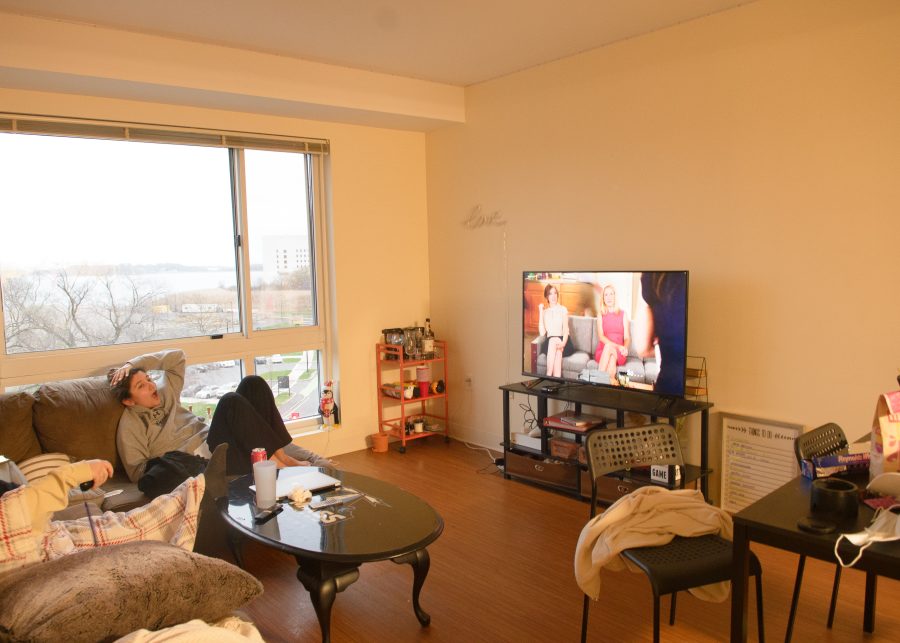Everyone has seen those young kids who walk everywhere with a dirty, ratted blanket gripped in one sticky hand with a corner dragging on the floor. These objects tend to be picked early in a child’s life to remind them of their mother as they begin to have time without her (1).
Those familiar items bring a sense of safety in new, anxiety-ridden situations, but eventually the child must give up the object in order to assimilate into adult society.
However, not many people notice that the object is replaced with something a little more acceptable for adults. In anxiety-inducing situations, many adults find themselves craving a sense of familiarity and reach for a favorite TV show, movie or book series.
Really what they are doing in these moments is searching for a distraction from the unknown of the future. The predictability of the media is easy to find comforting when people have what is called a heavy cognitive load. As Jennifer V. Fayard for Psychology Today said:
“Cognitive load refers to the amount of stress put on our working memory” (2).
Many people noticed an increase in stress and anxiety starting at the beginning of the pandemic, and so they compensated by watching “New Girl” over and over again on Netflix. They do this so they don’t add any more new information to their working memory than necessary.
A study done by the State University of New York at Buffalo showed that watching a familiar TV show can replace positive social interactions, leaving the audience feeling fulfilled and restoring their self-control (3). Watching a favorite show can benefit their mental health in a similar way to reconnecting with old friends. This is another reason people found themselves binging shows in the beginning of the pandemic: to compensate for the lack of social interaction outside of immediate family.
Because the audience experiences the characters’ stories with them, their brain reacts like they are real people. This includes feeling empathy and sympathy for them, and in some cases the viewers act as if they are friends with them. A lot of people pick up their favorite phrases from TV shows and movies, and incorporate them into their daily language, including, “How you doin’?” from Joey Tribbiani in “Friends,” and, “Ew, David!” from Alexis Rose in “Schitt’s Creek.” People also often pick up facial expressions and mannerisms that their favorite characters use after binging a show. As psychologist Tanya Percy Vasunia told Vogue India:
“People who struggle with expressing themselves often tend to take on characteristics from the characters they love… These small mechanisms can help you express emotions that have previously been difficult to express” (4).
When people who are fans of the same show get together, it is noticeable that they feel more of a connection to each other because the show is a source of comfort to both of them. In the workplace or school environment, peers can bond over this shared experience, creating real-life social connections.
Like when they were young kids using their comfort object to remind them of their mother, people often gravitate towards shows that remind them of their childhood, as seen in the resurgence of “Gilmore Girls” or the steady popularity of “Harry Potter.” This is also the reason why reboots of popular shows have been trending for the past few years, from the “Friends” reunion to the “iCarly” reboot. When viewers watch their new shows, they feel the same positive energy and emotions as they did when watching the original.
Next time when feeling the urge to rewatch a favorite show or reread a favorite book, try to consider what outside circumstances could be affecting this. Binging TV shows isn’t as bad as people make it out to be. Sometimes, it’s just what they need in order to feel a little bit better about their current situation.
Is binge-watching TV really that bad?
UMass Boston Student Jade H. watches “New Girl” in the comfort of her apartment with roommates. Photo by Olivia Reid / Mass Media Staff

